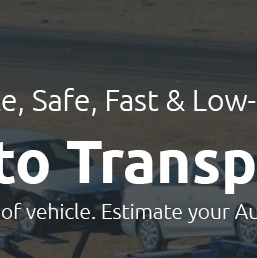 |
|
||||
 |
 |
 |
 |
||
 |
 |
|||||
 |
 |
 |
 |
 |
 |
 |
||
 |
 |
 |
 |
 |
 |
 |
 |
 |
 |
 |
|
 |
How Much Does It Usually Cost to Ship a Car?Shipping a car can be a daunting task, especially when you're trying to decipher the costs involved. It's a process that many find necessary, whether relocating to a new state, purchasing a vehicle from a distant seller, or sending a car to a family member. Understanding the factors influencing the cost can help you make an informed decision, balancing budget and convenience. The cost of shipping a car usually varies widely, influenced by several factors. Generally, prices can range from $500 to $1,500, but let's delve deeper to comprehend what drives these costs. Firstly, the distance plays a significant role. It's logical to assume that the further you need to ship the car, the higher the cost will be. For instance, transporting a vehicle across a few states may be on the lower end of the spectrum, while coast-to-coast shipments naturally incur higher fees due to the extended distance. Moreover, the route's popularity can affect the pricing. Popular routes, often between major cities, might offer more competitive pricing due to the higher volume of traffic and availability of transport carriers. Another factor is the type of transport you choose. Most people opt for open carriers, which are more economical and quite common. However, if you're shipping a luxury, classic, or exotic car, you might prefer an enclosed carrier, despite it being pricier, as it offers added protection from the elements and road debris. Choosing an enclosed transport could increase your costs by 30% to 50%, but the peace of mind it provides might justify the expense, especially for high-value vehicles. The time of year also impacts the cost. Shipping during peak seasons, like summer, or around holidays could see a spike in prices due to increased demand. Conversely, if you can schedule your shipment during off-peak times, you might find more attractive rates. Additionally, the car's size and weight play a crucial part. Naturally, larger and heavier vehicles such as SUVs and trucks will cost more to transport than compact cars due to the increased space and weight on the carrier. One should not overlook the company's reputation either. Companies with excellent reviews and reliable service might charge a premium, but this often translates to better customer service and peace of mind knowing your vehicle is in capable hands. It's worth noting that opting for the cheapest option might not always be the best decision, as lower prices could indicate a compromise on service quality. In conclusion, while shipping a car might seem like a straightforward task, the costs can fluctuate based on numerous factors. Weighing the pros and cons of each aspect-be it distance, type of transport, timing, vehicle size, or the transport company's reputation-can provide clarity and assist in making a well-rounded decision. Always remember, investing a little more for quality service can save you from potential headaches down the road, making the process smooth and worry-free. https://www.automoblog.com/reviews/shipping/car-shipping-cost/
Based on our 2024 secret shopper study, the average cost to ship a car is $0.96 per mile for open transport and $1.25 per mile for enclosed ... https://www.angi.com/articles/cost-to-ship-car.htm
Car shipping costs $1,190 on average, but prices can range from $550 to $2,500, depending on distance, shipping method, type and size of vehicle ... https://www.progressive.com/answers/how-to-ship-a-car/
According to UShip, the average cost to ship a car is $2.92/mile for distances of less than 200 miles and $0.78 per mile ...
|
